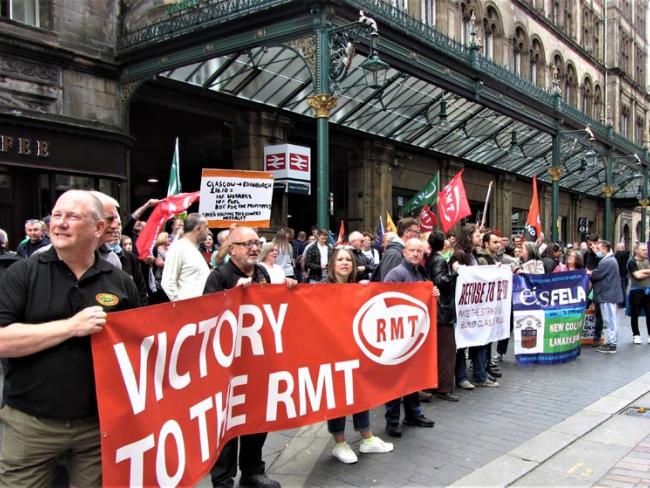The rail disputes are now nearly six months old, and railway workers and their unions – led by RMT – are now resigned to a long-drawn-out campaign as they fight for the future of their jobs and their industry, and endeavour to force employers to maintain the buying power of their wages. Many have had no pay increase for years.
The rail unions know that all-out strikes would not be wise. Instead they are keeping up a steady campaign of disruption through one-day strikes that keep the pot boiling. Called at a frequency that minimises the financial hit borne by the striking workers, this also minimises the fall-off in passenger numbers.
Meanwhile, the RMT has been forced by the anti-trade union laws to re-ballot the large number of members for whom the initial ballot in favour of strikes expires on 23 November. That re-ballot closes on 15 November. The other unions are expected to re-ballot shortly.
Given what the employers are seeking, the turnout and the majorities in favour of strikes could be even bigger than before. The proposals so far put to unions include slashing pay, ending collective bargaining, forcing staff to work where and when the employer dictates including Sundays, closing nearly all ticket offices, and effectively abolishing the role of the guard on the train.
• A longer version of this article is available on the web at www.cpbml.org.uk.

